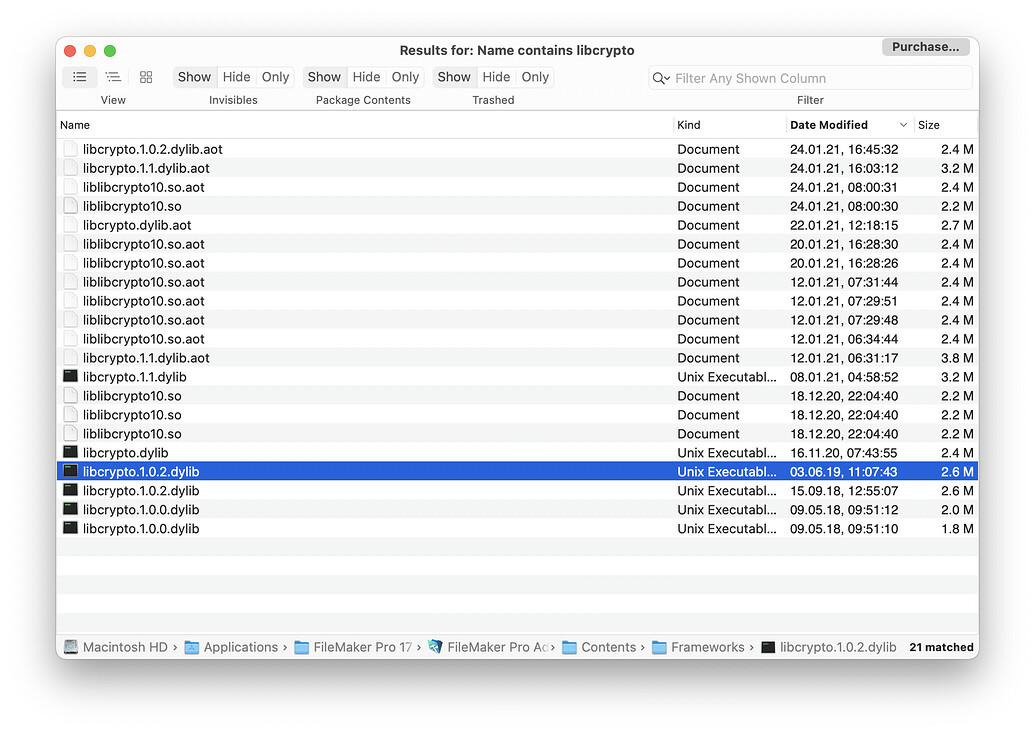
- UPDATE LIBFREETYPE.6.DYLIB MACOS HOMEBREW MAC OS X
- UPDATE LIBFREETYPE.6.DYLIB MACOS HOMEBREW INSTALL
- UPDATE LIBFREETYPE.6.DYLIB MACOS HOMEBREW UPGRADE
- UPDATE LIBFREETYPE.6.DYLIB MACOS HOMEBREW FULL
configure -with-pc-path="/usr/X11/lib/pkgconfig:/usr/X11/share/pkgconfig:/usr/lib/pkgconfig:/usr/local/lib/pkgconfig" LIBFFI_CFLAGS=-I/usr/include/ffi LIBFFI_LIBS=-lffi.
UPDATE LIBFREETYPE.6.DYLIB MACOS HOMEBREW MAC OS X
Mac OS X Lion has its own (incompatible) version of the stpncpy function, which overlaps in gettext. To compile GLib, you must also download gettext from GNU.org and edit the file stpncpy.c to add #undef stpncpy just before #ifndef weak_alias. You may either download pkg-config 0.23, or download the large tarball from and compile it. Pkg-config is necessary for detecting some of the libraries you can compile into FFmpeg, and it requires GLib, which is not included in macOS (but almost every other *nix distribution).
UPDATE LIBFREETYPE.6.DYLIB MACOS HOMEBREW INSTALL
Manual install of the dependencies without Homebrew Pkg-config & GLib Using Homebrew will however save you time in setting up all the needed tools.

Tip: If you don't want to use Homebrew to get the dependencies, see the section below. Opus sdl shtool texi2html theora wget x264 x265 xvid nasm To get some dependencies for ffmpeg, you can install Homebrew.īrew install automake fdk-aac git lame libass libtool libvorbis libvpx \ You can also install the tools via your shell: Install Xcode by downloading it from the website or using the Mac App Store.Īfter installing Xcode, install the Command Line Tools from Preferences > Downloads > Components. Xcode is required to compile software on your Mac.
UPDATE LIBFREETYPE.6.DYLIB MACOS HOMEBREW UPGRADE
If you have installed the HEAD, then you can upgrade by running: To later upgrade your ffmpeg version to the latest released, simply run: Options are available with brew options homebrew-ffmpeg/ffmpeg/ffmpeg.
UPDATE LIBFREETYPE.6.DYLIB MACOS HOMEBREW FULL
The following repositories for ffmpeg are available – refer to the README for additional information about the included options:įfmpeg can be installed from the repository using its full formula name after tapping, for example:īrew install homebrew-ffmpeg/ffmpeg/ffmpeg These repositories are not maintained by Homebrew. Users who want to build ffmpeg with additional libraries (including non-free ones) need to use so-called taps from third party repositories. Since v2.0, Homebrew does not offer options for its core formulae anymore. To get the latest Git master version, run: These versions are packaged as Homebrew formulas and will take care of all the dependencies and the installation itself. To get the latest released version with minimal configuration (and library dependency) options. This will take a few minutes while it's installing the necessary developer tools for macOS. In order to use it, you need to install brew first, if you haven't already:įollow the on-screen instructions. Homebrew is a command-line package manager, which is similar to apt-get on popular Linux distributions. Then, run:įor an overview of the FFmpeg variants available through MacPorts look here. For the installation follow the MacPorts documentation. In order to use it, you need to install port first, if you haven't already. is a command-line package manager, which is similar to apt-get on popular Linux distributions. See the compilation section below for more info.

However, the configuration options have to be set manually, and you will need to install third-party libraries yourself. configure with the needed flags, make and make install. Compiling on macOS is as easy as on any other *nix machine. Also, they may not contain all encoders or filters you want. One disadvantage with static builds is that updates have to be performed manually. This is as easy as extracting and running the downloaded binary.

See the Homebrew section and the MacPorts section below for more info. These will automatically keep your FFmpeg installation up-to-date.


 0 kommentar(er)
0 kommentar(er)
